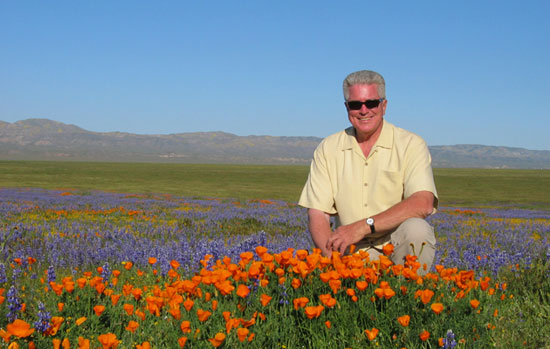A legacy of California gold
January 10, 2013
The obituaries told us that he’d been a fixture on local television since the early 1980s, but I could have sworn that Huell Howser had been a part of our family for a lifetime. It felt like I’d been a fan of his for that long. When Huell generously agreed to preside over my swearing-in as a newly-minted County Supervisor in 1994, it was one of the high points of my political career.
Huell came from sturdy American stock. He was born in Gallatin, Tennessee, established in 1802 as the county seat of Sumner County and named for Albert Gallatin, a Secretary of the Treasury under Presidents Thomas Jefferson and James Madison. Maybe it was that kind of rich history and sense of place you find in so many Southern towns that helped develop this country boy into the gifted storyteller that enchanted the city slickers here in Los Angeles for so many years.
Huell and I shared a deep fascination with history in our college studies, and he earned his undergraduate degree in it from the University of Tennessee in Knoxville. After a stint in the Marine Corps and serving on the staff of Sen. Howard Baker—one of my Watergate heroes—he embarked on a career in TV news, working locally in Nashville before graduating to New York.
In 1981, he came to Los Angeles as a feature reporter for KCBS-TV, but soon found that the hustle of local TV news and its obsession with crime and celebrity fluff wasn’t his thing. In 1985, he found a happier home at KCET, then the Southern California flagship station for PBS. There he created a wide variety of feature programs like Videolog, California’s Gold and others, and finally hit his stride as a joyful chronicler of all things California, from quirky people and offbeat occupations to spectacular natural wonders and all manner of outdoor adventures.
With his shades, Hawaiian shirts, shorts or khakis, he was like a slightly goofy tour guide for a statewide vacation that never ended. There was nowhere he wouldn’t go, nobody he wouldn’t talk to. He was always friendly, cheerful, courteous and somehow incredibly interested and excited to learn about the most obscure places, occupations or activities.
Everything was “amazing” to Huell—“Oh, my gosh! Would you look at that!” he would always exclaim. It’s been said many times, but I honestly think it was Huell’s sense of innocence and wonder that was the key to his enduring and universal appeal. It wasn’t an act. There was nothing cynical, ironic or post-modern about it. This wasn’t the “Daily Show.” Off-camera—and I know, since we were friends and practically neighbors when he was staying at the grand old El Royale Apartments on Rossmore—he was exactly the same earnest and charming guy that you saw on screen.
Huell may have been born in Tennessee, near the cradle of the Confederacy, but he became by choice an adopted son of the Golden West. Maybe that’s why he had so much respect and admiration for the wonderful things too many of us native Californians take for granted.
It was easy to make fun of his folksy, “gee-whiz” manner, but you just had to spend five minutes with him to know that it was no put-on. His segments were just as honest and straightforward, strictly do-it-yourself productions—Huell and a camera guy, basically—but who needed all the other bells and whistles? The classic storytellers of ancient times required only a campfire, an audience, and a story to tell.
Though he became a genuine TV star, he never lost his modesty or humility. As he was winding down his career, he donated his tapes, books, and even his spectacular Volcano House home in the desert to Chapman University. Nearing the end, he instructed his colleagues that he wanted no ceremony or memorial, public or private, and he asked close friends to honor his wishes that they not participate. He just wanted people to watch his shows and enjoy the stories. That’s the only tribute he wanted.
When we first learned of his retirement in November, we hoped to honor him at the Board of Supervisors. We couldn’t have known at that time that he was already too ill to participate.
Now he’s gone, and it feels like we’ve all lost a cherished friend. So let me just say: “Happy trails, Huell.” You’ve left behind a wonderful legacy.
Posted 1/10/13













 405 bridge work causes a stink
405 bridge work causes a stink





